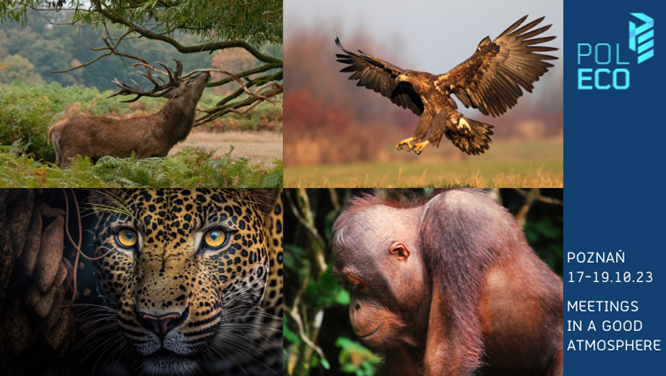Celebrate March 3 with a view to preserving precious natural wealth
Biodiversity is essential for providing people with food, fresh water and clean air. It is of great importance to our health, including by limiting the spread of disease. It is irreplaceable in maintaining environmental balance and combating climate change. Today is March 3 - World Wildlife Day, established by the United Nations.

Wild plants and animals play a huge role in maintaining the balance of the environment, which is our heritage of natural, aesthetic, scientific, cultural, recreational and economic value. Why do we mention it just today? March 3 is World Wildlife Day. This is the UN's way of drawing attention to the value of wildlife, as well as the threats to it caused by the illegal trade in endangered specimens. "Partnerships for Wildlife Conservation" is the slogan for the celebration of this holiday in 2023.
The date of March 3 is no coincidence. It was on this day in 1973 that the Convention on International Trade in Endangered Species of Wild Fauna and Flora (Washington Convention, CITES) was adopted, which Poland ratified on December 12, 1989.
World Wildlife Day was established by the UN General Assembly to celebrate the global abundance of wildlife and to draw attention to the still unsolved problem of trafficking, which is perpetrated by both poachers and more or less unaware tourists.
We all depend on ecosystems
At the borders of the world's countries, customs services continue to confiscate CITES-protected specimens - animals, plants, hunting trophies, as well as products such as bags, shoes, belts, necklaces, products made from illegally harvested ivory and other items containing parts of endangered plants and animals.
We all depend on the ecosystems and biodiversity resources that provide life on Earth and support our well-being by providing many of nature's benefits, such as food, building material and raw materials that enable the production of medicines, clothing or fuel. For millions of people around the world, nature is a primary source of livelihood.
Meanwhile, the results of global analyses indicate that our over-consumption and associated progressive changes in land, sea and ocean use, uncontrolled exploitation of natural resources, activities leading to soil, water and air pollution or invasion of alien species have directly led to a dramatic decline in biodiversity in almost all types of terrestrial and aquatic ecosystems. Scientists warn that already more than a million species worldwide are threatened with extinction, and as a consequence, the structure and functions of all ecosystems, both terrestrial and marine, are in danger.
Such a large loss of plant and animal species that until recently inhabited our planet and their habitats poses a serious threat to all forms of life on our planet. There is an absolute need to reverse the fate of critically endangered species and restore ecosystems and promote their sustainable use.
50 years of fighting for biodiversity
This year marks the 50th anniversary of the CITES Convention, ratified by more than 180 countries around the world, which aims to protect wild populations of animals and plants of endangered species by, among other things, controlling, monitoring and restricting international trade in them.
The smuggling of live animals, trophies, jewelry, plating or medicines based on unconventional medicine poses a great threat to the survival of many animal species. Seahorse extract as a cure for urinary tract disorders? Skeletal fragments of reef-forming corals or leathery skin from a brown bear as decoration? These are just some of the CITES specimens seized by the Customs and Fiscal Service in Poland in 2021.
It's not just species that are in danger, but also the benefits of ecosystems that are indispensable to human survival on Earth. The loss of natural capital observed in recent decades raises serious concerns, especially in the face of additional pressures on biodiversity in the form of advancing climate change and its effects.
Scientific consensus
There is now a broad scientific consensus that recognizes that human-induced increases in atmospheric greenhouse gas levels are responsible for rising global temperatures and, consequently, climate change. The effects of these changes, such as heat waves, droughts, extreme storms, floods, landslides and rising sea levels are not only natural disasters that affect our well-being, but also a direct threat to ecosystems and the species that inhabit them.
At a time when there is less and less room left for the wildlife displaced by humans, it makes sense to live with the least possible negative impact on wild plants, animals and their habitats - not just on March 3. How to do it?
- Organize excursions and learn about the surrounding nature.
- Visit botanical gardens, national parks and nature reserves.
- Join conservation programs or eco-clubs.
- Take part in scientific initiatives focusing on nature.
- Use books or apps to identify plant and animal species.
- Use credible websites, blogs or social media to raise awareness about the importance of conservation and share your ideas.
If you want to learn more about CITES endangered species, this WEBSITE is worth a visit.



